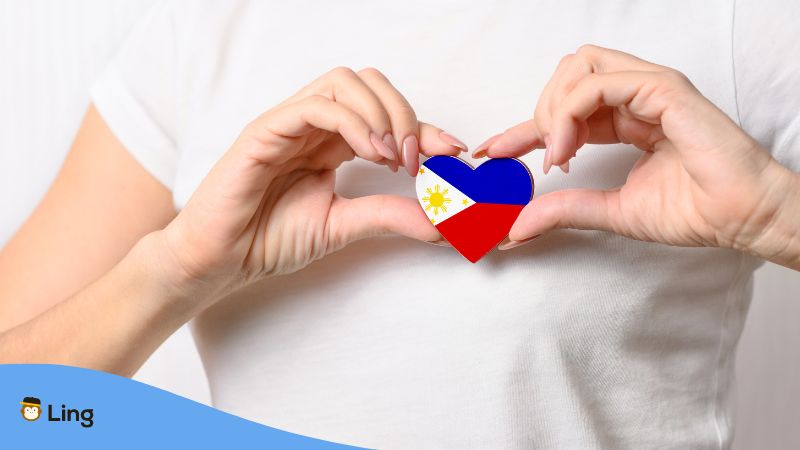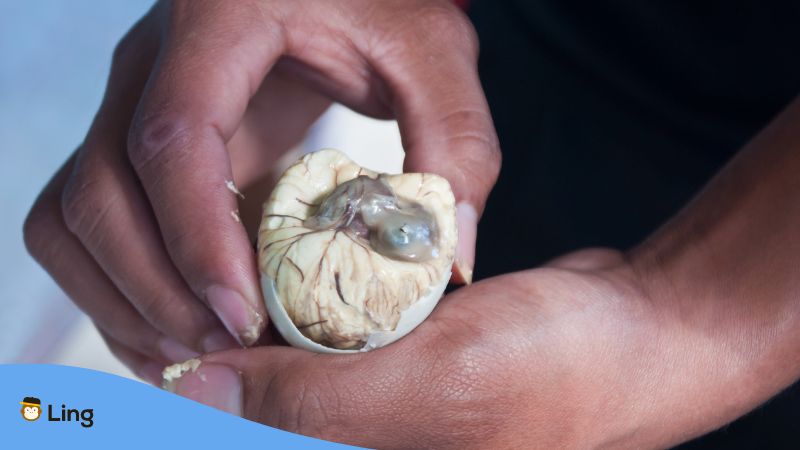Mabuhay, Marites, Jowa — There’s no doubt that you have heard at least one of these famous Tagalog words while surfing the net. Wanna know more? Keep on reading!
If you’re fascinated with Philippine culture or just have Filipino friends or family, it’s not impossible that you have heard some famous Tagalog words. With their legacy in the world of pageantry, music, entertainment, and even sports, we can’t avoid coming across famous Tagalog words.
So, here’s a list of some famous words in the Tagalog language that many people across the world might know.
How Does A Filipino Word Becomes Famous?
The Philippines is such a small country in Southeast Asia but how come many people across the world know some Filipino words? Well, there are different factors causing that. First is the Filipino language/the Tagalog language isn’t hard to learn especially if you know Spanish. Words are pronounced the same way they are spelled.
Another factor is the population of Filipinos around the world. If you have Filipino friends or relatives, you can’t also stop yourself from learning or hearing even just one Filipino word since Filipinos love talking to others.
Lastly, because of social media. We cannot deny that Filipinos are known for different things – beauty queens, singers, actors/actresses, and more. Since social media breaks boundaries, it’s easy to learn Tagalog words through music videos, movies, vlogs, podcasts, and more.
Learning these famous Tagalog words will help you sound like a local and will give you a kickstart in learning Tagalog. The vocabulary that you will learn might be helpful for you in the long run.

Formal Famous Tagalog Words
These are the famous Tagalog words that you’re gonna hear in everyday conversation. There are also beautiful Filipino words that are uniquely Filipino like pahimakas (last farewell), kundiman (love song), gigil (uncontrollable urge), lambing (intense tenderness) and kaulayaw (intimate companion). If you wanna learn about these beautiful words, there’s a separate blog for you. But for now, we will learn some famous Tagalog words that people who are interested in Filipino culture or have a connection with a Filipino might know.
Mabuhay
Example Sentence: Mabuhay! Maligayang pagdating sa Pilipinas! (Greetings! Welcome to the Philippines!)
Going to the Philippines? Don’t be startled when someone welcomes you while saying “Mabuhay” out loud. There’s no exact translation of this word in other languages but it is used as a greeting in the Philippines. Some of the situations that it’s often used is when welcoming someone into the country or province. It is also used as a greeting when starting a speech or a program. This is one of the famous Tagalog words because you’ll often hear it from planes, tour guides, and locals.
How Are You – Kumusta?
Example Sentence: Kumusta ang iyong pamilya (How’s your family?)
Wanna check someone out in the Tagalog language? Just say “Kumusta” which means “How are you?” in English. This is a famous Tagalog word because it is one of the conversation starters. So, if you wanna start a conversation with somebody, learn this word. Fun fact, it is derived from the Spanish word “Cómo estás”.
Good Morning – Magandang Umaga
Example Sentence: Magandang umaga sa’yo! (Goood morning to you!)
This next famous Tagalog word is a way to greet ‘Good Morning’ in the Filipino/Tagalog language. This is the easiest and most common way to greet someone politely in the morning. Remember only to use this in the morning. There are other greetings that might be useful like the following:
Good afternoon – Magandang umaga
Good evening – Magandang gabi
Goodbye – Paalam
Thank You – Salamat
Example Sentence: Salamat sa tulong mo. (Thanks for your help.)
Of course, we cannot forget to include this phrase on the list. If you wanna thank someone in the Filipino language, simply say “Salamat.” This is famous because you’re going to hear this a lot starting from the plane, at the airport, in the streets, and everywhere you go. This is indeed a must-learn phrase to show gratitude and politeness towards Filipino people.
I Love You – Mahal Kita

Example Sentence: Mahal kita simula pa noong una. (I love you from the very start.)
Wanna know how to tell someone that you love them? Just say “Mahal kita.”. This is one of the famous Tagalog words because this is how you say “I love you” in the Filipino language. Well, no wonder why it’s famous considering how you can easily fall in love with a Filipino.
Beautiful – Maganda
Example Sentence: Maganda si Catriona Gray. (Catriona gray is beautiful.)
Country, culture, and people – the Philippines is truly a beautiful country. That’s why the word maganda or beautiful is one of the most famous Tagalog words. It is used to describe something or someone that is beautiful like a girl.
Sorry – Pasensya/Paumanhin
Example Sentence: Pasensya ka na. Hindi ko sinasadya. (Sorry. I did not mean to do it.)
Accidentally did something that might hurt or offend someone? Just say paumanhin or pasensya. In everyday conversation, Filipinos mostly used pasensya. Paumanhin on the other hand is a more old-fashioned word. This is one of the famous Tagalog words because it has something to do with politeness and respect.
Delicious – Masarap
Example Sentence: Masarap ang adobo. (Adobo is delicious.)
The word masarap is a famous Tagalog word that is used to describe a food or dish that is tasty or delicious. Filipino food is known to be good like adobo, sinigang, lechon, lumpiang shanghai and more. So, if you’re up for some Filipino food trip, this is a must-learn word.
Balut

Example Sentence: Kailangan mong subukang kumain ng balut. (You should try eating balut.)
Aside from vocabulary, there is also a famous Filipino word that refers to a boiled or steamed fertilized egg embryo that is eaten from the shell. Your trip to the Philippines will not be complete if you won’t try eating balut.
Famous Tagalog Slang Words
With the internet, the birth of Tagalog slang words is rapidly increasing. What’s new? What’s trending? All of these affect the formation of Tagalog slang words that are now famous not just for Filipinos but to other people who have encounters with Filipinos as well. So here are some Tagalog slang words. If you wanna learn more, there’s a separate blog post for you.
Pinoy
Example Sentence: Mahilig kumain ang mga pinoy. (Filipinos love eating.)
The slang word Pinoy is a shortened and informal word for Pilipino (Filipino). It is usually used in informal situations like daily conversations, commercials, social media posts, and more that’s why it’s a famous Tagalog word.
Jowa

Example Sentence: May jowa ka na? (Do you already have a boyfriend/girlfriend?)
The word jowa is a famous Filipino slang word that means “boyfriend/girlfriend” or “special someone”. Remember that it is only used for informal situations. You should not use it in formal situations unless it is part of the discussion or topic.
Sana All
Example Sentence: Sana all, may jowa! (I hope everyone has a boyfriend/girlfriend!)
It is a combination of the Tagalog word “sana” which means “I hope” and the English word “all”. It is a modern expression used if you want something another person has. This is a popular expression in everyday conversation. For example, if your friend bought a new iPhone, you can say “Sana all, my iPhone.” (I hope everyone has an iPhone.)
Marites
Example Sentence: Ang daming marites sa paligid. (There are lots of people around who love to gossip.)
Another famous Tagalong slang word is Marites. This is a newly-emerged word that Filipinos use to refer to people who are nosy or love to gossip. Although this is a slang word, do not just use it for people whom you just met or are not very close with.
In popular culture in the Philippines, a “Marites” is a netizen who finds and keeps track of everything, especially weird things, usually on social media. Since the days before the Internet and up until the blogosphere and digital norms, gossip has been called tittle-tattle, scuttlebutt, hearsay, and other names.
Lodi
Example Sentence: Pa-picture naman, lodi! (Can I have a picture, idol?)
The word lodi is just an inverted form of the English word idol. A “lodi” is someone you admire or look up to. For example, you wanna learn math and you want your classmate who is good at math to teach you. You can say, “Uy lodi, paturo naman ako ng lesson as math.” (Hey idol, please teach me the lesson in math). There’s also a shorter version of it which is lods it is used the same way. Remember, you cannot use this in formal situations like when calling a teacher or boss.
Chika
Example Sentence: Uy, anong chika? (Hey, what’s the tea?/Hey, What’s new?)
The word chika is another famous Tagalog slang word that means gossip or tea (not the tea that we can drink). The slang word “chika” can mean either something that isn’t entirely true (like gossip, rumors, etc.) or something new that your friends are looking forward to hearing from you. It evolved from the slang word “chismis” which literally has the same meaning.
SKL (Share Ko Lang)
Example Sentence: Ang saya ko ngayon, SKL. (i’M HAPPY TODAY, JUST SHARING.)
In daily conversations, you can hear the expression “Share ko lang” or “SKL”. It is used to share something with other people like life updates, stories, news, or others. The word lang means only or just. So, when you say “Share ko lang” you literally just want to share without expecting everyone to react or reply.
Besh/Beshi/Bessy
Example Sentence: besh, labas tayo! (hey best friend, let’s go out!)
The words “Besh/Beshi/Bessy” means “best friend”. But, not all the time it means best friend. It became a term used to call other people regardless if you’re best friends or not. But, when someone calls you this, they send a message to be comfortable with the conversation.
Yarn

Meaning: Noli yarn? (Is that Noli?)
The word yarn is another famous Tagalog slang word derived from the word “iyan” (that or it). It is not referring to a kind of thread. You can mostly hear it nowadays to express doubt or disbelief, or to show how pleased they are. You can easily choose any word to describe your photo or video and add yarn to the end. One of the most famous uses of this slang word is Barbie Forteza’s line in the hit Filipino TV series “Maria Clara at Ibarra”
Go Beyond Famous Tagalog Words!

Famous Tagalog words can easily be learned online or by just talking to other people. But, it takes more than just famous Tagalog words to actually communicate meaningfully. So, why not start learning with Ling app?
With Ling app, there are lots of features that you can use and enjoy to learn Tagalog or any other language. These features can actually develop your language skills like reading, speaking, listening, grammar, and more. You can choose from a variety of lessons that is close to your interests. What’s more interesting is that learning with Ling app is flexible because you can learn languages anytime and anywhere you want.
So, go beyond learning famous Tagalog words. Let’s make language learning fun and meaningful. Learn Tagalog with Ling app now!



































































